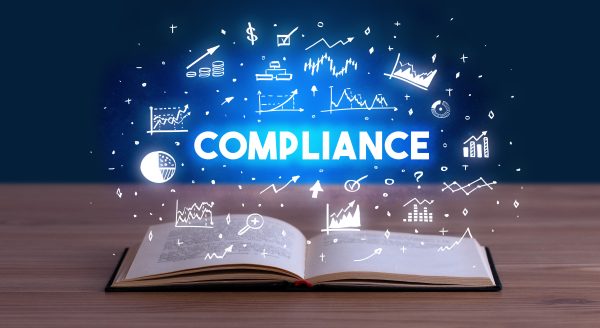Gramm-Leach-Bliley Act Summary. What Every Financial Institution Needs to Know
GLBA (the Gramm-Leach-Bliley Act) is a U.S. federal law enacted on November 12, 1999, to reform the financial services industry and address concerns relating to consumer financial privacy. GLBA requires financial institutions to protect the privacy and security of consumers' sensitive nonpublic personal information (NPI).
For many organizations in the financial sector, achieving compliance with the GLBA can feel overwhelming. Banks, credit unions, insurance providers, mortgage lenders, and other financial service businesses often fall under the law’s scope, yet many lack the in-house expertise, budget, or time to fully meet its complex requirements.
This article breaks down the key aspects of GLBA in practical terms, giving organizations a clear starting point for building a compliance strategy even when resources are limited.
Who should comply with GLBA
Under GLBA, a financial institution is any company that is "significantly engaged" in financial activities or activities incidental to them, such as offering financial products or services like loans, insurance, investment advice, or check-cashing. Thus, among others, entities are subject to GLBA requirements if they engage in the following:
- Traditional banking functions;
- Making, acquiring, brokering, or servicing loans or other extensions of credit;
- Real estate and personal property appraising;
- Collection agency services;
- Credit bureau services;
- Asset management, servicing, and collection activities;
- Leasing personal or real property;
- Real estate settlement servicing; and
- Bringing together one or more buyers and sellers of any product or service for transactions that the parties themselves negotiate and consummate.
GLBA compliance requirements are also relevant to educational institutions. In one of our previous articles, All You Need to Know About GLBA Compliance in Higher Education, we explored the question of how higher education institutions should address GLBA compliance.
GLBA Summary
GLBA establishes strict rules for how consumer financial information must be collected, shared, and protected. Understanding its main components, the Financial Privacy Rule, the Safeguards Rule, and pretexting provisions against deceptive practices, is critical for avoiding penalties, reducing security risks, and maintaining consumer trust. While both, Privacy and Security rules fall under the GLBA, they address different aspects of consumer data protection:
- The Privacy Rule governs how consumer information is collected, shared, and disclosed. It ensures transparency by requiring notices and giving consumers the right to opt out of certain data sharing.
- The Security Rule (Safeguards Rule) governs how consumer information is protected. It focuses on creating a strong information security program that prevents unauthorized access, misuse, or breaches of sensitive financial data.
Let’s see the main aspects of both:
GLBA Financial Privacy Rule
The Financial Privacy Rule requires financial institutions to inform consumers about their information-sharing practices and provide consumers with the right to opt out. To comply with the GLBA Privacy Rule, your organization must take structured steps to protect consumers’ nonpublic personal information (NPI) and demonstrate transparency in how that data is used. The key requirements include:
Provide privacy notices. Issue clear and conspicuous notices when a consumer relationship is established, and provide them annually thereafter. These notices must outline:
- the types of information you collect;
- how that information is used;
- whether it is shared with affiliates or third parties;
- the safeguards in place to protect it.
Offer opt-out rights. Implement a simple and reasonable process for consumers to opt out of having their NPI shared with nonaffiliated third parties. Options can include an online form, a toll-free number, or a mailing address.
Limit data sharing. Ensure that any NPI shared with third parties is only used for permitted purposes under GLBA. Sharing should be restricted to service providers or cases required by law or regulation.
Integrate GLBA privacy requirements into your organization’s compliance and information security program. This includes documenting policies, training employees, and monitoring third-party compliance.
By following these steps, banks, credit unions, insurers, mortgage lenders, securities firms, and other financial institutions can align with GLBA obligations while also building consumer trust through responsible data handling.
GLBA Safeguards Rule
Safeguards Rule requires financial institutions and their affiliates to have measures to keep consumer information secure. In 2021, the GLBA Safeguards Rule underwent significant updates. As a practical matter, the amendments require financial institutions to revise a series of their policies and procedures, from risk assessments to vendor oversights. Now, the key requirements to comply with GLBA Safeguards Rule include:
Develop a written information security program. Create and maintain a comprehensive security plan that addresses administrative, technical, and physical safeguards for consumer information.
Designate responsible personnel. Assign at least one qualified individual to oversee and coordinate the information security program.
Conduct risk assessment. Regularly identify and evaluate internal and external risks to consumer data, including cyber threats, unauthorized access, and insider misuse.
Implement safeguards. Put in place appropriate measures such as access controls, encryption, multi-factor authentication, and secure data disposal practices.
Oversee service providers. Ensure third-party vendors with access to consumer data are contractually obligated to maintain adequate safeguards.
Test and monitor. Continuously monitor and periodically test the effectiveness of your security controls, making updates as risks and technologies evolve.
Train employees. Provide ongoing training so staff understand security policies, incident response protocols, and their role in safeguarding consumer information.
In November 2023, the FTC introduced new breach notification requirements mandating financial institutions to notify the FTC ASAP, and no later than 30 days after discovery, of a security breach involving the information of at least 500 consumers.
GLBA pretexting provisions
GLBA was created in response to increasing fraud and identity theft schemes based on pretexting, the act of obtaining sensitive details under false pretenses. Today, pretexting falls under the broader category of social engineering, with phishing and similar schemes remaining some of the most effective attack methods. Although the techniques have evolved, the pretexting provisions remain highly relevant for protecting consumers’ financial information.
The rule outlines several clear prohibitions:
False pretenses. Consumer information cannot be acquired or disclosed through misrepresentation.
Third-party solicitation. No one may request another person to obtain financial data if it involves false pretenses.
Law enforcement exception. The rule does not restrict legitimate law enforcement agencies from accessing consumer information when acting within their official authority.
For financial institutions, following pretexting provisions means taking proactive steps to prevent unauthorized access. This often involves implementing strong identity and access management practices, training employees to detect and respond to social engineering attempts, and educating consumers on safe cybersecurity habits to reduce their exposure to phishing and similar threats.
Comply with GLBA with expert leadership
Complying with the GLBA is not just about meeting regulatory requirements but also protecting consumer trust. Achieving compliance, however, comes with challenges: closing the skills gap, managing compliance anxiety from frequent regulatory updates, avoiding resource diversion from day-to-day operations, and mitigating the risk of costly non-compliance penalties or data breaches.
Planet 9 GLBA compliance services turn regulatory complexity into a clear, efficient process so you can focus on business growth. Our approach includes:
- Conducting a discovery of your organization, business processes, and technologies.
- Performing a GLBA compliance review to evaluate existing safeguards and identify gaps.
- Carrying out a risk assessment to uncover potential threats to financial data.
- Developing a practical roadmap to close compliance gaps and reduce risks.
- Supporting your team in executing the roadmap and achieving sustainable compliance.
Follow up on the recent legal updates, and feel free to contact Planet 9 if you have any questions. We’ll be happy to assist!
Website: https://planet9security.com
Email: info@planet9security.com
Phone: 888-437-3646







